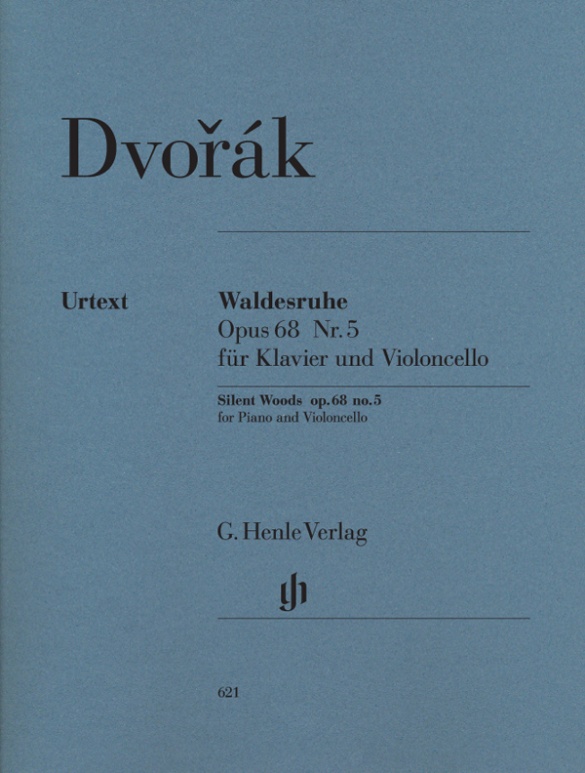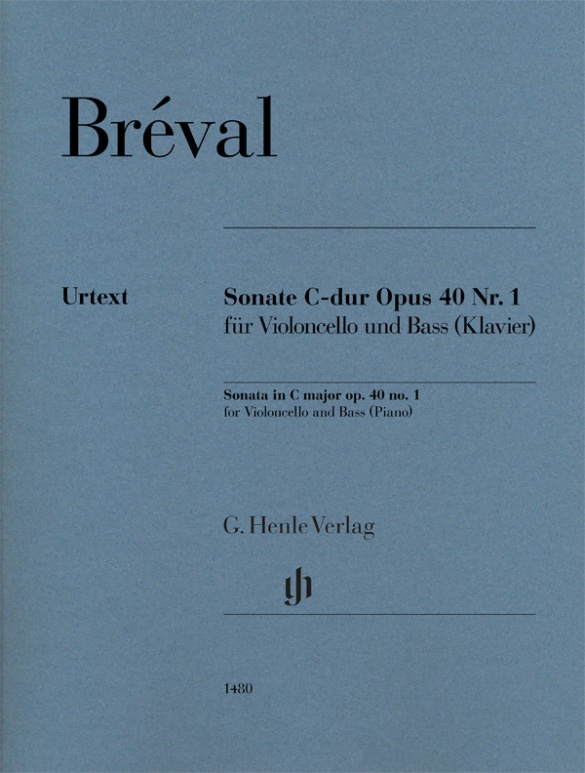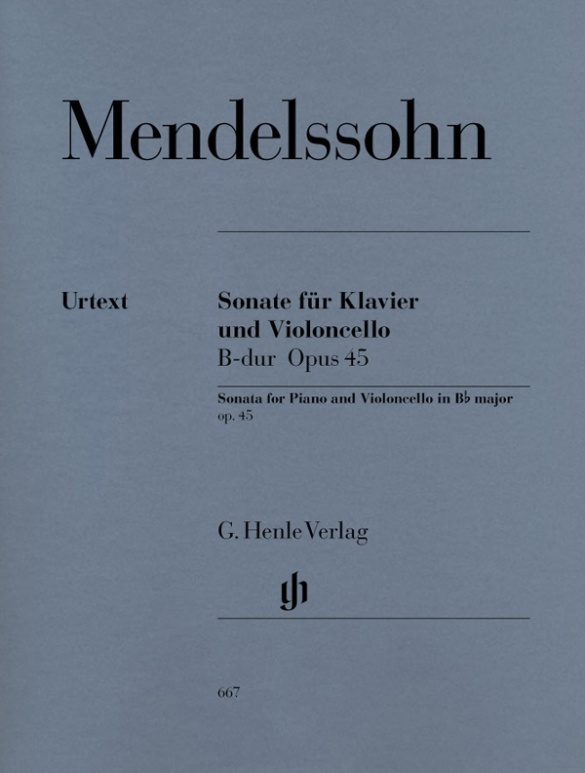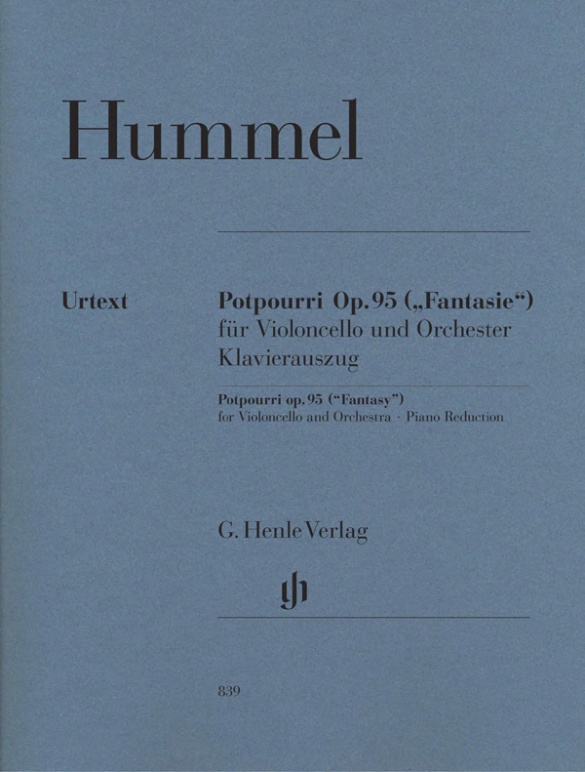

Johann Nepomuk Hummel
Potpourri (Fantasy) op. 95 for Viola and Orchestra, Version for Violoncello
Hummels “Potpourri” for Violoncello and Orchestra op. 95 is part of every violoncello player’s core repertoire, especially in its shortened version, the “Fantasy”.
Sprinkled with quotes from operas by Mozart and Rossini and framed by spirited, newly composed passages, the “Potpourri” fills a gap in the small repertoire of the classical-early romantic period. Sebastian Hess has provided fingerings and bowings for the solo part. And it goes without saying that the “Fantasy” version can also be played using our edition. Hummel produced this version in addition to the original edition for viola. The version presented here was out of print for many years, but we have now made it available again.
Content/Details
About the Composer
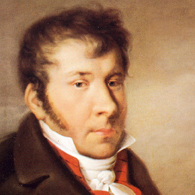
Johann Nepomuk Hummel
Composer and pianist, whose works are positioned stylistically at the transition from Classicism to Romanticism. They encompass nearly all genres, including six piano concerti, sonatas, chamber music, incidental music, and sacred works. Admired as a virtuoso during his lifetime, he showed his technical skills in a comprehensive course on the art of piano playing. He was a member of the Institut de France and the Gesellschaft der Musikfreunde (Society of Friends of Music) in Vienna, among others.
| 1778 | Born in Pressburg (Bratislava) on November 14. His father, a professional musician, gives him his first music lessons. |
| 1786–88 | The family relocates to Vienna, where he becomes the pupil of Wolfgang Amadeus Mozart. |
| 1788–93 | With his father he undertakes a multi-year concert tour through Europe. In London he meets Joseph Haydn. |
| from 1793 | Back in Vienna, he becomes the pupil of Johann Georg Albrechtsberger, Antonio Salieri, and Joseph Haydn. |
| 1804–11 | He is concertmaster of Prince Esterházy’s orchestra in Eisenstadt. |
| from 1811 | In Vienna he devotes himself primarily to composition and teaching. |
| 1813 | He marries Elisabeth Röckel, a singer at Vienna’s Hoftheater. |
| 1816–18 | He is Royal Württemberg Court Music Director in Stuttgart. |
| from 1819 | In February he becomes court music director in Weimar, and rises to become one of that city’s most important musical figures. |
| 1827 | In Vienna he meets Franz Schubert. He participates in the funeral of Ludwig van Beethoven. |
| 1828 | He publishes his Course of Instruction on the Art of Playing the Piano, which he had drafted in Weimar. |
| 1831 | With André Hippolyte Chelard he directs the Thuringia Music Festival in Erfurt. |
| 1837 | Dies in Weimar on October 17. |
About the Authors

Norbert Gertsch (Editor)
Dr. Norbert Gertsch, born in 1967 in Rheinkamp/Moers, studied piano solo at the Mozarteum in Salzburg and read musicology and philosophy at the Paris Lodron University in Salzburg and the Ruperto Carola University Heidelberg on a scholarship from the “Studienstiftung des Deutschen Volkes”. In 1996 he wrote his doctoral thesis on Ludwig van Beethoven’s Missa solemnis (as part of the New Complete Edition) under Ludwig Finscher.
In the following year, he began to work at G. Henle Publishers, initially as an editor for electronic publishing. After working on a two-year project (1999–2000) sponsored by the German Research Foundation (DFG) preparing a new Beethoven Catalogue of Works, he became a scholarly editor at G. Henle Publishers. In 2003 he became Editor-in-Chief, in 2009 Deputy Managing Director and Head of Publishing. As of 1 January 2024, the Executive Board of the Günter Henle Foundation has appointed Dr. Norbert Gertsch, as the new managing director, succeeding Dr. Wolf-Dieter Seiffert.
Gertsch has published many Urtext editions for G. Henle Publishers, including volumes for a new edition of Beethoven’s Piano Sonatas together with Murray Perahia.
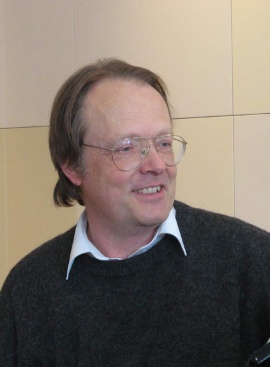
Johannes Umbreit (Piano reduction)
Prof. Johannes Umbreit studied the piano at the Musikhochschule in Munich. From 1987 onwards he was a regular accompanist at courses given by Wolfgang Schneiderhan, Thomas Brandis, Ljerko Spiller, Igor Ozim, Olga Woitowa, Ernő Sebestyén, Walter Nothas, F. Andrejevsky, Denis Zsigmondy and Zakhar Bron amongst others. He has appeared in numerous radio and TV broadcasts and plays chamber music with members of the Bavarian State Orchestra, the Munich Philharmonic Orchestra and the Bavarian Radio Symphony Orchestra.
He is on the jury of different international competitions and has been invited to several international music festivals. Umbreit was a teacher for almost ten years at the Musikhochschule in Munich and at the same time a lecturer for chamber music and piano accompaniment at the Richard Strauss Conservatory. Since 2008 he has been a lecturer at the Hochschule für Musik und Theater München. As the long-serving managing director of the Richard-Strauss-Gesellschaft, he was made an honorary member of the board in 2009. In May 2011, the Bavarian Minister of Culture appointed Johannes Umbreit an honorary professor of the Hochschule für Musik und Theater München on the suggestion of its academic senate.
Product Safety Informations (GPSR)

G. Henle Verlag
Here you can find the information about the manufacturer of the product.G. Henle Verlag e.K.
Forstenrieder Allee 122
81476 München
Germany
info@henle.de
www.henle.com
Die Herausgeber bei Henle, Norbert Gertsch und Johanna Steiner, haben eine sorgfältig recherchierte, vorzügliche Ausgabe mit einem ausführlichen Vorwort und Kommentar zu Quellen und Edition herausgegeben.
Schweizer Musikzeitung, 2009Epuisèe depuis plusieurs annèes, la version pour violoncelle est à nouveau à la disposition des interprètes et du monde musical.
Crescendo, 2009Tutta l’opera è pervasa da una scrittura fortemente virtuosistica e sempre brillante: lo sono sicuramente le due riduzioni per viola e pianoforte e violoncello e pianoforte, pubblicate dall’edizione G. Henle Verlag, in cui la parte per pianoforte è sempre molto curata.
Archi Magazin, 2008Höchste Zeit und sehr erfreulich, dass neben der verstümmelten Fassung nun endlich das geistsprühende und virtuose Original in einer exzellenten Ausgabe zu bekommen ist. … Höchste Zeit also, dass dieses Werk seinen Weg aus den Hochschulen in die weite Welt der Orchesterpodien und Kammermusiksäle findet.
Ensemble, 2008推荐
autogenerated_cross_selling
本书目其他版本
本书目其他版本


